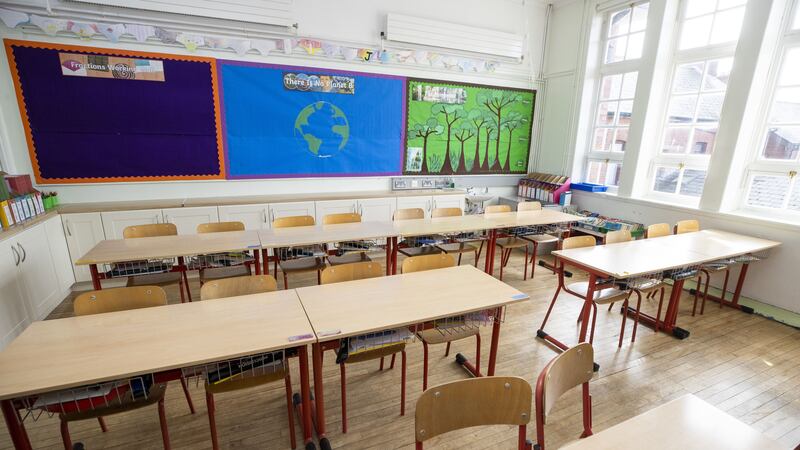Teaching assistants are taking second jobs or leaving education to work in better-paid roles amid cost-of-living pressures, a report suggests.
Around three in four senior leaders reported that some teaching assistants (TAs) in their schools have taken up additional employment to supplement their income, according to a survey.
The National Foundation for Educational Research (NFER) report – which reached out to senior leaders in schools – suggests that some TAs have left schools in favour of better-paid roles in sectors such as hospitality and retail.
The report says cost-saving measures by schools in response to cost-of-living increases have “intensified” pressures on staff and made retention harder.
Cost-of-living increases have “compounded pressures” on school budgets, limiting the salaries schools are able to offer potential TAs and other support staff, it adds.
Nearly half (45%) of senior leaders in secondary schools, and more than a third (34%) of leaders in primary schools, said low salaries were the single biggest barrier to recruiting TAs.
The survey, of 1,354 senior leaders in mainstream primary and secondary schools in England in April and May, found that the majority are struggling to recruit TAs and other support staff.
The report, conducted in collaboration with ASK Research and funded by the Nuffield Foundation, also included survey responses from 87 senior leaders in special schools.
It suggests 75% of senior leaders in secondary schools and 72% of leaders in primary schools reported that some of their TAs are taking second jobs alongside their role for the first time.
The figure was 82% for the senior leaders in special schools surveyed.
“These findings highlight that cost-of-living pressures have led many TAs to supplement their income via other sources and suggests that pay for TAs should be revisited in light of these pressures,” the report said.
Report co-author Jenna Julius, NFER research director, said: “The cost-of-living pressures are intensifying existing recruitment and retention challenges.
“Staff and potential applicants are more likely to look for higher paying and less pressurised jobs outside the sector while budget pressures are limiting the salaries which schools can afford.”
This week, the Government announced the creation of a new taskforce – of unions, teachers, and sector leaders – aimed at easing the workload on under-pressure teachers.
The move came amid concerns about teacher shortages, with ministers hoping to cut working hours for teachers and leaders by five hours a week over the next three years.
The Department for Education (DfE) is also planning an update to its teacher recruitment and retention strategy to help attract and support teachers.
The NFER is calling on the Government to extend its scope of the teacher recruitment and retention strategy, and ensure TAs are included in a wider education workforce strategy.
Ms Julius said: “A new long-term workforce strategy, including teaching assistants, school support staff and tutors, alongside teachers and leaders, is needed.
“For wider support staff, this should include looking at whether pay is competitive enough to attract and retain sufficient high-quality staff.”
Paul Whiteman, general secretary of school leaders’ union the NAHT, said: “Teaching assistants do an incredible job – they are the unsung heroes of the education system. They’re the ones providing the support for vulnerable children that is so vital.
“Without TAs schools are not able to do the things they need to help catch up from Covid, for example, or to support children with SEN – and there’s a knock-on impact for the whole classroom if teachers’ time is taken up with things they usually rely on TAs to do.”
He added: “Schools want to be able to pay TAs what they are truly worth, but they just don’t have the funding to do so. It’s a real bind and school leaders are very concerned about it.”
A Government spokeswoman said: “Teaching assistants play a valuable role in supporting pupils’ education alongside excellent teachers.
“Our education reforms gave schools the freedom to make their own decisions about recruitment, pay and conditions and most schools pay teaching assistants according to local government pay scales.
“We know people are struggling with the cost of living, which is why the Government is bearing down on inflation and providing record financial support for the most vulnerable worth an average £3,300 per household.”








